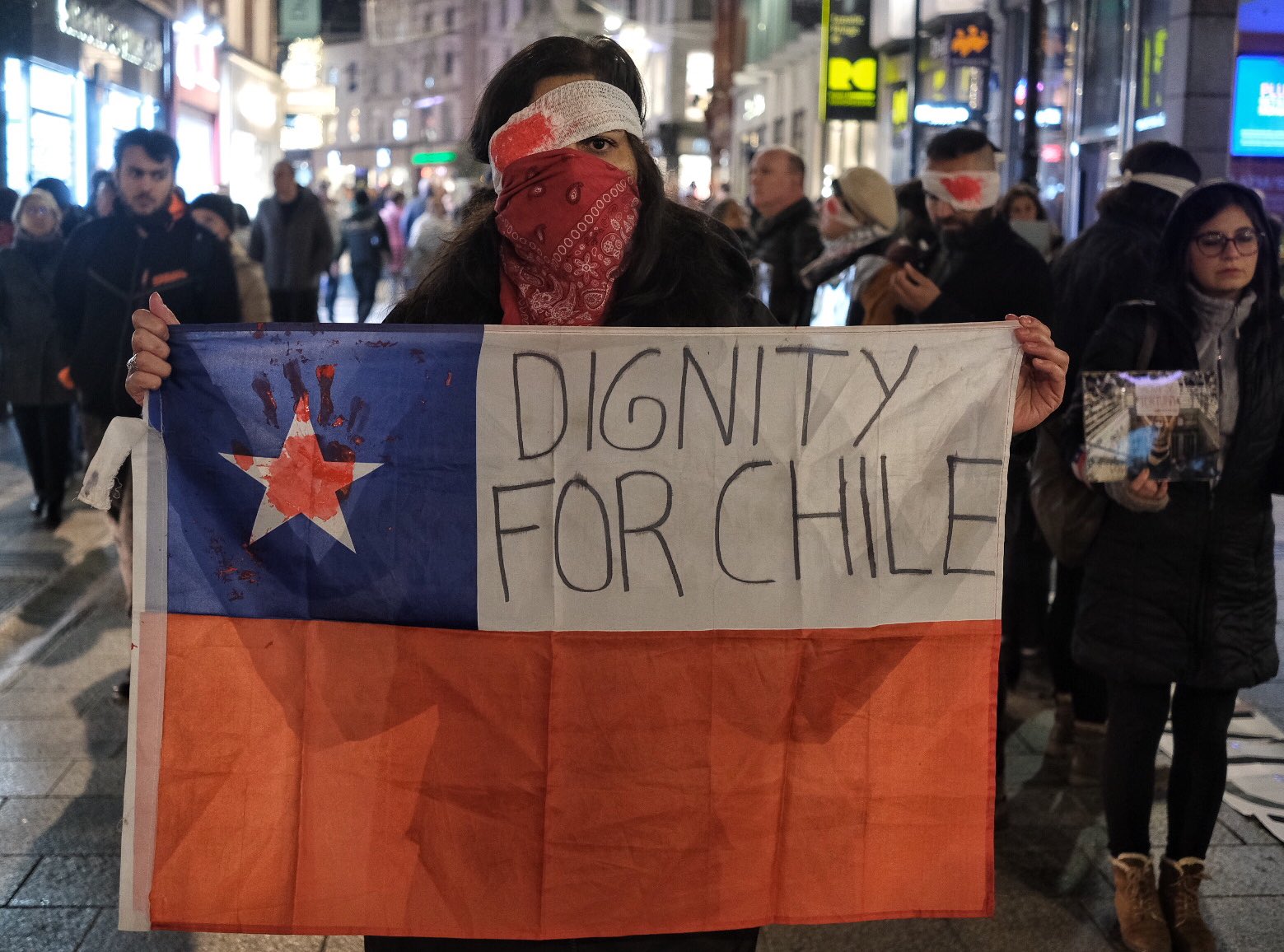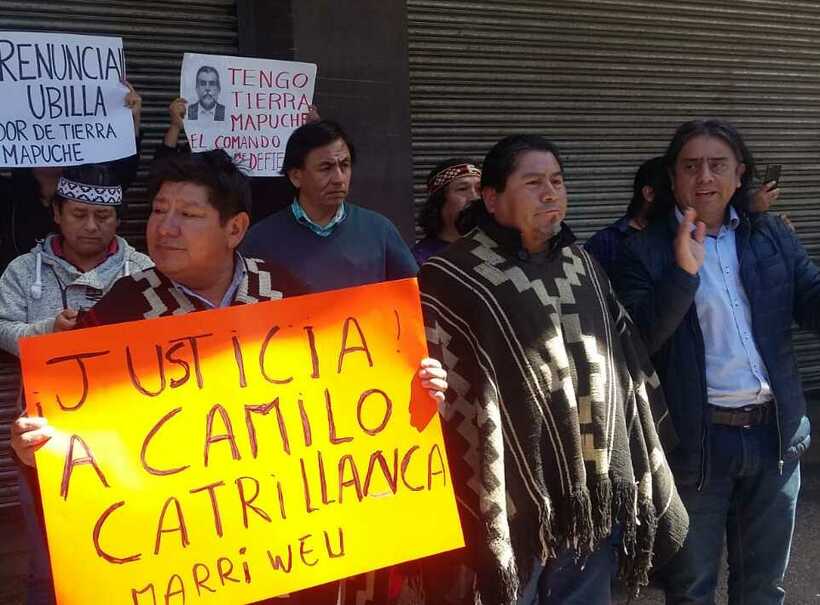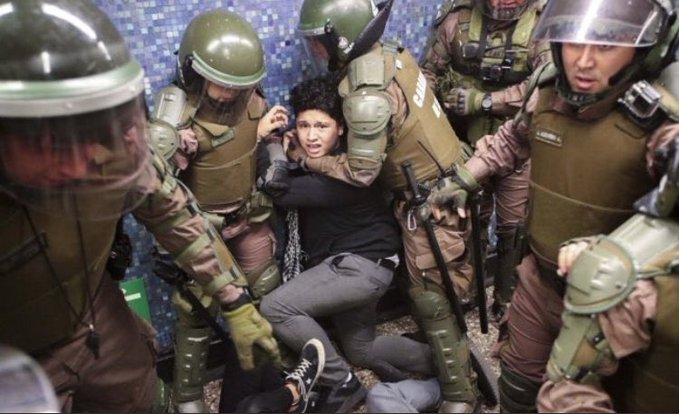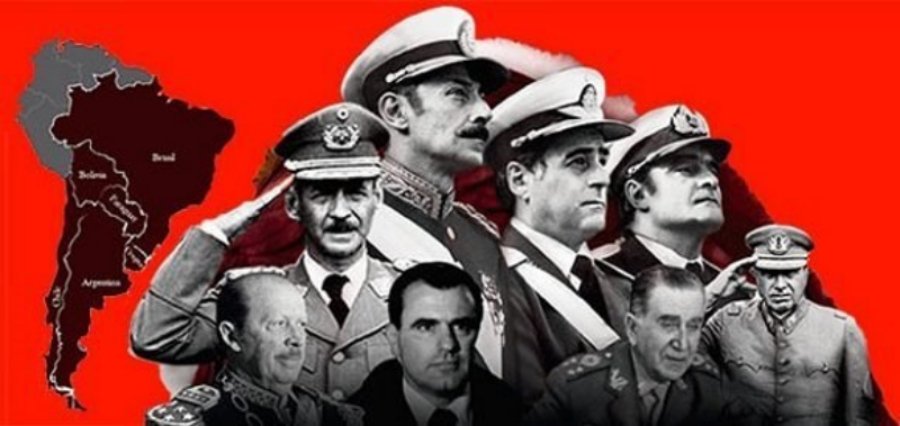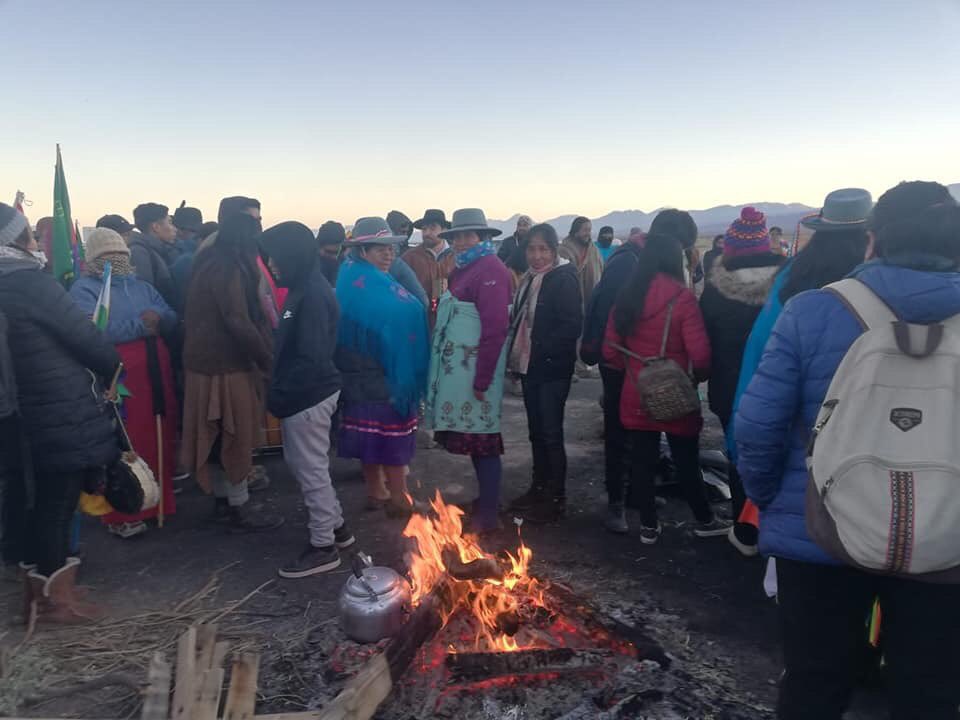
Chile: lithium interests under pressure by uprising
Chilean company Sociedad Quimica y Minera (SQM), under pressure from the government amid falling prices and rising protests, committed to define by year’s end the destination for lithium from its lease area at the Salar de Maricunga. SQM, one of the world’s top producers, already has a larger lithium mine in production at another area of salt-flats, the Salar de Atacama—but operations there were suspended for several days as campesinos blocked roads to the site as part of the popular uprising in Chile. Leaders of the Consejo de Pueblos Atacameños, representing 18 indigenous communities, pledged to resist any expansion of lithium operations in the area, citing threats to local water sources. (Photo via El Ciudadano)



